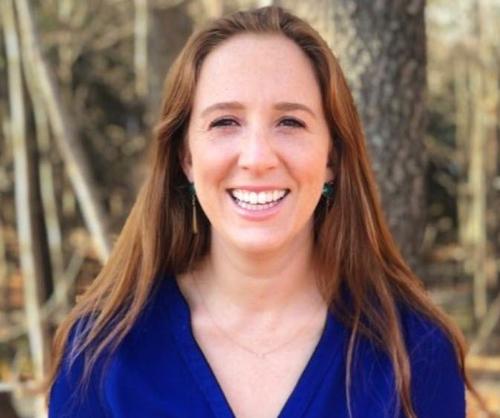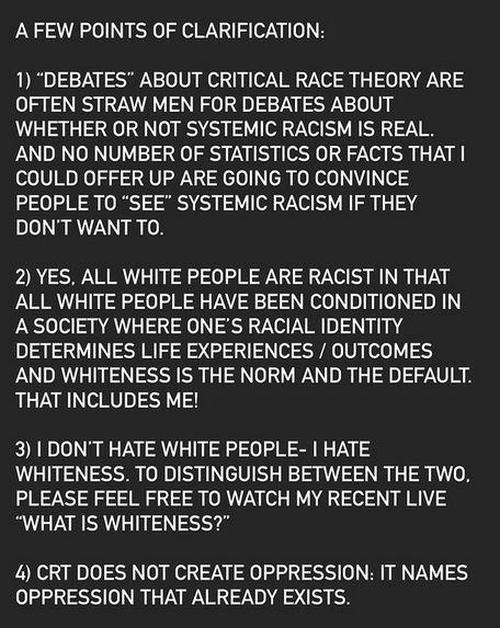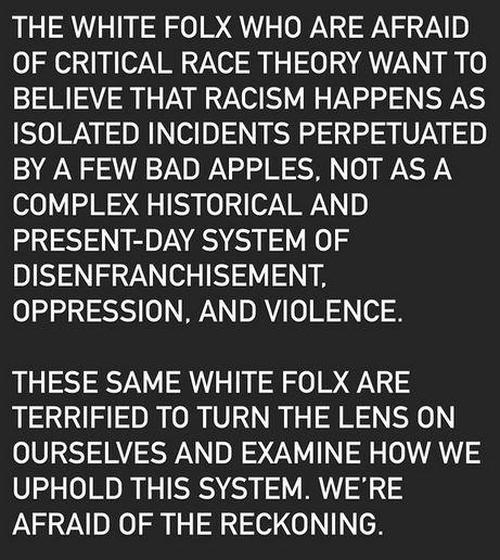Brandeis Dean Declares “Yes, All White People Are Racists”
Last year, we discussed the controversy over the acting Northwestern Law Dean declaring publicly to “I am James Speta and I am a racist.”
He was followed by Emily Mullin, executive director of major gifts, who announced, “I am a racist and a gatekeeper of white supremacy. I will work to be better.”
The public confessions reflect the view that all white people are racist due to their race and privilege — a view contested by some as itself a form of racial intolerance or bias.
Now one of Brandeis’ Assistant Deans, Kate Slater, has triggered a similar controversy after declaring “all white people are racists.”
Slater is the Assistant Dean of Student Affairs in the Graduate School of Arts and Sciences.
Slater defines herself as an “anti-racism scholar” who is seeks to “facilitate an understanding of race and racism through honest and frank conversations.” In her discussion of “critical race theory,” she does not exclude herself from being a racist and insists that she does not hate white people, just “whiteness.” Such statements rankle many. It is doubtful that Brandeis would tolerate an academic saying that she does not hate black people, just “blackness.”
Slater defines her role as helping “White people conceptualize what sustained anti-racism can look like with the ultimate goal in mind: liberation from oppression for Black people and people of color.” Ironically, this is an effort to get “white folx” not to fear critical race theory which clearly did not work with a number of conservative sites:
I have a different take on this controversy from some who have denounced Slater as engaging in simply another form of “race baiting.” I agree with Slater that we should be debating this issue. This is a view among many academics and should be respected as a good-faith understanding of the source of racism.
The problem is that critical race theorists and advocates often insist that we must have a dialogue on race but it tends to be more of a diatribe. For an academic to voice opposing views on such issues is to risk investigation, re-training, or even termination, as we have discussed in past cases. The only dialogue allowed in these sessions tends to be the willingness to accept the underlying premises rather than alternative viewpoints. Indeed, most sessions are treated as “trainings” to address “whiteness:” and “white privilege” rather than debating if this view is itself racially intolerant. The same is true at corporations like Lockheed where top executives were sent into mandatory training to address “white male culture” and “white male privilege.”
Slater says that she seeks “an understanding of race and racism through honest and frank conversations” but it is clearly a discussion premised on the assumption of all white people being racist and “whiteness” being hateful. It is designed to be more therapeutic and transformative for white people than a real debate of the assumptions and stereotypes underlying this aspect of critical race theory.
It is a loss in my view and inhibits true evolution of viewpoints and assumptions. I accept that I many be blind or insensitive to racial bias or privilege, but I have serious concerns over the bias shown in some of these lectures and supporting material.
Colleges and universities were once places where controversial subjects could be debated in a passionate but civil exchange. Assumptions were challenged and data reviewed. That is not happening on many of the issues that face us today. Certain subjects are treated as off-limits. We have been discussing the targeting of professors who voice dissenting opinions about the Black Lives Matter movement, police shootings, or aspects of the protests around the country from the University of Chicago to Cornell to Harvard to other schools. Students have also been sanctioned for criticism BLM and anti-police views at various colleges. Even a high school principal was fired for stating that “all lives matter.”
I obviously follow a robust view of free speech that is out of vogue today. I have no problem with extreme views being voiced on campus so long as schools allow countervailing views also to be voiced. For that reason, I have defended faculty who have made similarly disturbing comments “detonating white people,” denouncing police, calling for Republicans to suffer, strangling police officers, celebrating the death of conservatives, calling for the killing of Trump supporters, supporting the murder of conservative protesters and other outrageous statements. We previously wrote about academic freedom issues at University of Rhode Island due to its Director of Graduate Studies of History Erik Loomis, who has defended the murder of a conservative protester and said that he saw “nothing wrong” with such acts of violence.
We cannot make true progress unless we are able to speak openly and freely on such subjects. Many disagree with the views of academics like Slater but few faculty members are willing to raise such disagreements openly on campus. To do so is to risk being labeled as an example of reactionary white privilege and hostility. Without such freedom to challenge underlying assumptions or viewpoints, these sessions will be viewed as indoctrinations rather than real discussions of race in society. That will serve to silence many but convince few.
Tyler Durden
Sat, 05/29/2021 – 15:30
via ZeroHedge News https://ift.tt/3wFRYQC Tyler Durden


